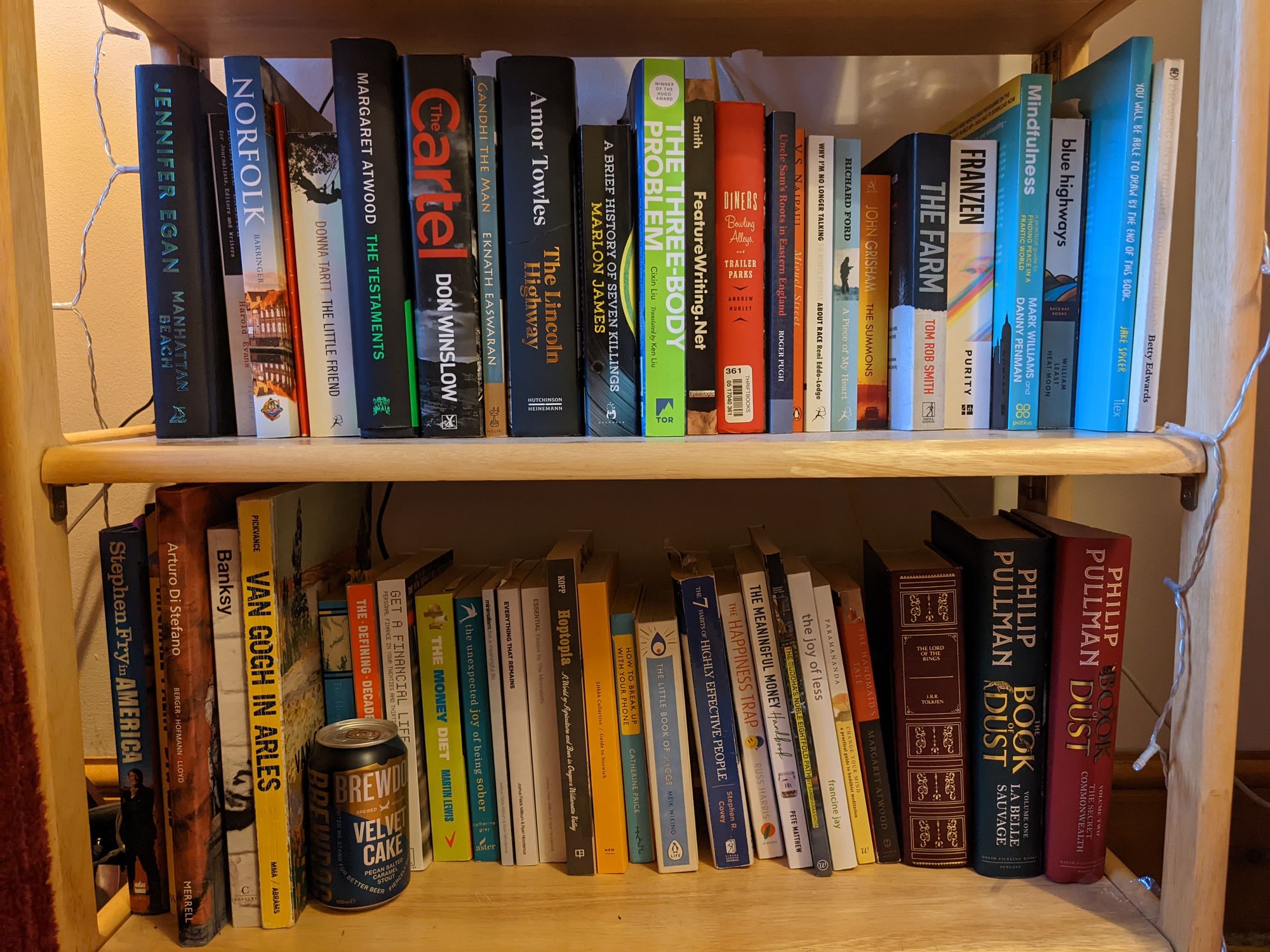How Nigella Lawson helped me come to terms with Reader's Block

In the midst of national lockdowns and a global pandemic I didn't think, of all people, Nigella Lawson would be making it onto my gratitude list.
Not for her recipes or sublimely trollish pronunciation of microwavé.
But because she vocalised a phenomenon I'd been struggling with but couldn't name and by helping that click for me, she nudged me towards accepting it.
I'm talking about Reader's Block.

Now, I read a lot every day for work or in one form or another.
Stories. Emails. Reports. Presentations.
I also scroll through social media and dive into web articles about various bits and bobs I find curious or the All-Knowing Algorithms throw my way.
But I'm not talking about that kind of reading - what I mean here is for some time now I've found it a real struggle to read books for pleasure.
How does this relate to Nigella I hear you ask?
Well, one weekend I was feeling posh and treated myself to a real, in the flesh Sunday newspaper.
Because under the encouragement of my dear friend, colleague and mentor who happens to be the editor of the Norwich Evening News, I have been experimenting with reading newspapers from across the political spectrum.
The point is even if I might not like a paper for their politics or approach.
Yet there might still be something to learn about a) how you can dislike a newspaper but if they serve their audience well, are enthusiastically well-read and a commercial success - perhaps they have something to teach us but also b) what people I might not rub elbows with usually are thinking and feeling.
Both are noble endeavours even if the experience is desperately maddening sometimes.
So that weekend in May 2020 I picked up a copy of the Sunday Times from my local corner shop and wandered back home with a whacking great densely packed paper tucked under my arm.
A lot of long form reads, extensive political commentaries and adverts for luxury holidays, clothing and homeware followed. When I arrived at the letters and columns section a piece by Nigella stopped me in my tracks.
In the headline she mentioned audiobooks - something I happily discovered and fell in love with while working my way through the NHS Couch to 5k running programme.
I was a little obsessed with them actually.
"Tell me more," I thought.
On Reader’s Block and word hunger: my column in @TheSTStyle https://t.co/7kNCwFK4aA
— Nigella Lawson (@Nigella_Lawson) May 31, 2020
It was the headline that caught my attention but the first two lines of the intro hooked me:
What was Reader's Block? Why did it make so much sense? The words that followed resonated with me big time.
I felt guilty I was enjoying audiobooks while struggling to read but couldn't put my finger on why.
As Nigella put it:
I realise I agreed. Reading is meant to be close and personal, us and the book, alone against the world. There's also a cultural weight to the act of reading because it symbolises intelligence and learning. I just felt uninspired by it.
Though not all audiobooks were the answer.
For Nigella, she found fiction books impossible to listen to because she hated how actors put on voices for the various characters.
I disliked them because I listened to them while running and you need your wits about you. Fiction doesn't lend itself to this because you need to pay full attention to the plot.
If few seconds slipped by in a non-fiction listen is not typically the end of the world - you keep the gist of things bobbing along.
Miss a few seconds in a fiction book because you need to check for traffic before crossing a road and BAM the character you just thought was in a taxi is now drowning off the side of a canal boat.
(Disclaimer: not an actual plot, but I think it would be a cool creative writing prompt to try and connect the two.)
Nigella made me feel better about turning towards audiobooks when she concluded, in a typically rich Nigella fashion:
Maybe I'll get back into the swing of things with reading someday. I'd like to because it is a lovely spectacle when you find flow state with a book that whisks you away or speaks to you.
For now I accept I'm suffering an extended bout of Reader's Block.
And I'm very grateful to Nigella for naming it and pushing me on a path towards being okay with it.





Member discussion